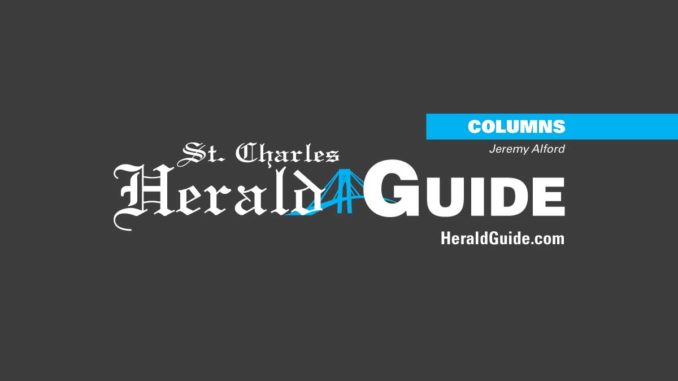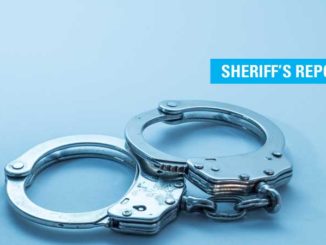
In what will be a noticeable change of pace, voters will only have to read through four proposed constitutional amendments on the Oct. 24 ballot, including two that would institute substantive changes to the way transportation projects are funded.
There were 14 amendments on the fall 2014 ballot, leading to voters complaining about information overload and good government groups accusing lawmakers of abusing the process.
But things could have been different this go around — not since 2010 had Louisiana lawmakers introduced more constitutional amendments in a regular session, setting a five-year high for proposed alterations to the state’s guiding charter.
In all there were 67 constitutional amendments introduced for the regular session that adjourned on June 11. Only four survived.
Lawmakers say the low success rate was attributable to a contentious debate over taxes and fees and a $1.6 billion budget shortfall that sucked everything into its orbit. The House and Senate were quick to dismiss the more complicated measures filed that had little to no impact on the state’s most immediate challenges.
The two highest-profile amendments that will be on the fall ballot track public opinion support for the way transportation projects are funded.
SB 202 by Sen. Robert Aldey, D-Benton, would steer state mineral revenue — cash derived from oil and gas activities — toward transportation projects, rather than depositing that money into Louisiana’s so-called “rainy day fund,” known more formally as the Budget Stabilization Fund.
If adopted by voters, it’s estimated that as much as $21 million would be directed to transportation projects through this amendment beginning in fiscal year 2017.
Adley said that haul could potentially reach $100 million annually, but oil prices would have to jump above $100 per barrel and it’s difficult to predict when exactly that might happen again.
It’s all part of a larger legislative package from Adley, approved during the session, that will eliminate the dedication of vehicle sales taxes that are supposed to go inside the Transportation Trust Fund beginning in 2020. Currently the vehicle sales tax generates about $400 million annually.
Adley’s constitutional amendment would replace that with the targeted mineral revenue, which would be able to be deposited into the transportation fund immediately, as opposed to waiting until 2020 for the vehicle sales tax provision to kick in.
Adley said the trade off of upwards to $21 million now as compared to $400 million later is necessary to keep pace with the state’s bloated backlog of transportation construction projects.
He also argues that the state’s gas tax, which helps underwrite road and highway work, is no longer an effective tool.
In summary, according to the Baton Rouge-based Public Affairs Research Council, a large future revenue source for roads and infrastructure would been eliminated and in its place would be more speculative sources for transportation funding.
“This scenario is likely to renew and strengthen the debate about whether the state should increase fuel taxes,” PAR stated in its session wrap-up report.
There’s also HB 618 by Rep. Karen St. Germain, D-Plaquemine, which would allow the investment of public funds in a state infrastructure bank for transportation projects.
In passing a related bill this session to set up the operational framework, St. Germain said it would function like a revolving loan program with minimal finance costs that would allow local governments to move forward with a variety of transportation projects, including port infrastructure work.
Voters will also be asked to decide the fate of two other constitutional amendments on the fall ballot:
— HB 360 by Rep. Bubba Chaney, R-Rayville, would make sure that property taxes on Louisiana land owned by another state or out-of-state political subdivision are paid to the Louisiana treasury. Right now other states aren’t paying these taxes.
— HB 518 by Rep. Julie Stokes, R-Kenner, would more broadly define what kind of tax, rebate and revenue bills can be filed in a fiscal session, which are held during odd-numbered years.
One super PAC loses URL to another
Louisiana Rising is the super PAC, or political action committee, that is supporting the gubernatorial campaign of Public Service Commissioner Scott Angelle. But LouisianaRising.com is a website paid for by the Fund For Louisiana’s Future, the super PAC that is backing the bid of U.S. Sen. David Vitter.
It’s yet another embarrassing reminder of how important it is for modern campaigns to secure all variations of web addresses.
While LouisianaRisingPAC.com does belong to the Angelle boosters, LouisianaRising.com will take you to a webpage entitled “Sinkhole Scott.”
That’s where the FFLF team takes Angelle to task for stepping down as secretary of the Department of Natural Resources around the same time a sinkhole was discovered in Bayou Corne — and at the same time Angelle was running for the Public Service Commission.
This is the second time such a digital doozie was dished up for Angelle supporters. GeauxAngelle.com is the campaign’s website, but the handle wasn’t scooped up and secured on Twitter. Instead, @GeauxAngelle belongs to an anonymous party who supposedly has no connections to the campaign and sometimes masquerades as the candidate in posts.
Super PACs are different from standard political action committees in that they do not have to adhere to donation limits. They are also prohibited from coordinating on most all activities with the candidates and campaigns they support.
They Said It
“I don’t count his guns and he doesn’t count my shoes.”— Sen. Sherri Smith Buffington, on married life
“Personal misbehaviors on the part of male politicians were not an unusual thing.” —Alecia P. Long, a history professor at Louisiana State University, on the relationship between late Gov. Earl K. Long and Blaze Starr, the famed Bourbon Street dancer who passed away in June, in The Associated Press





Be the first to comment